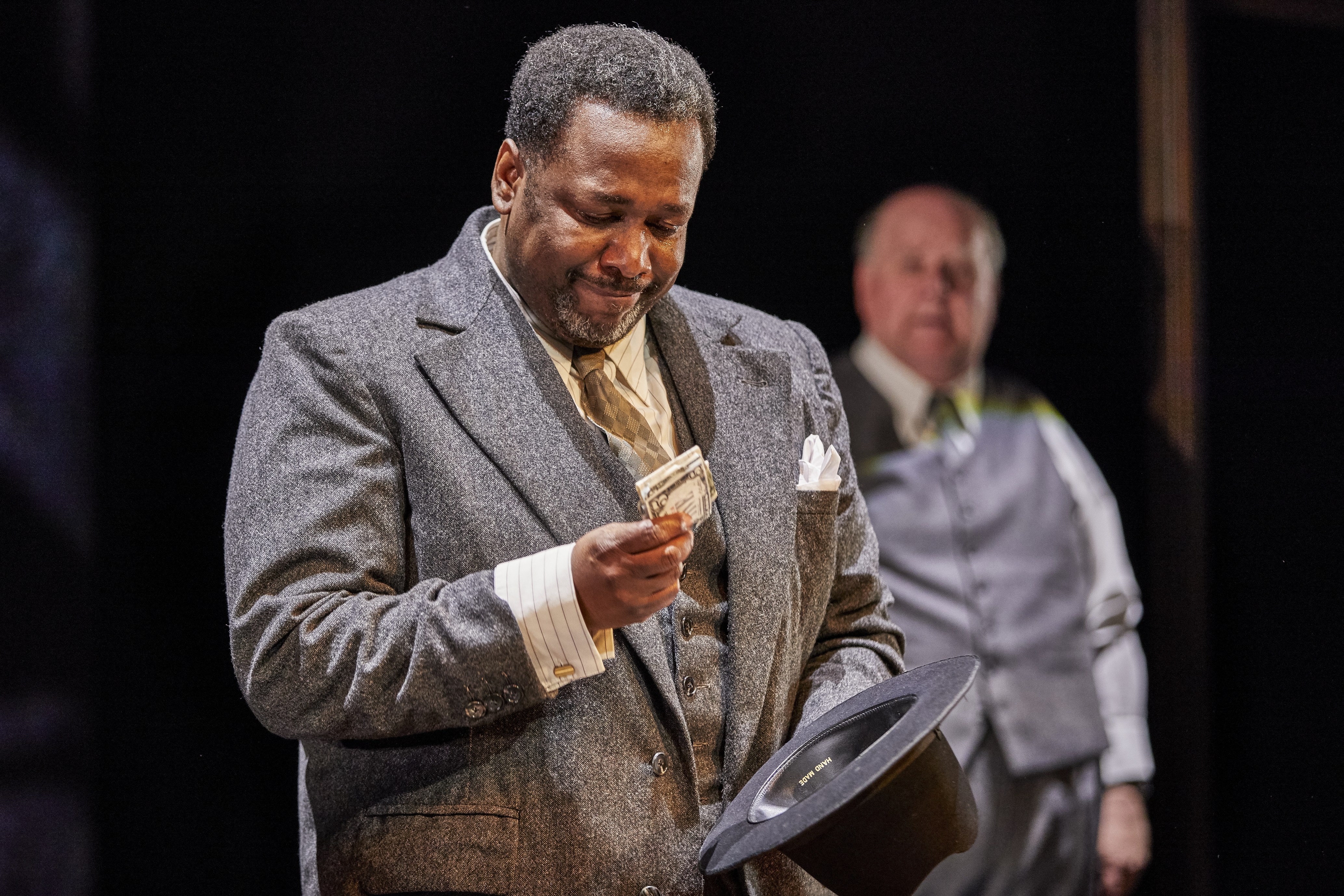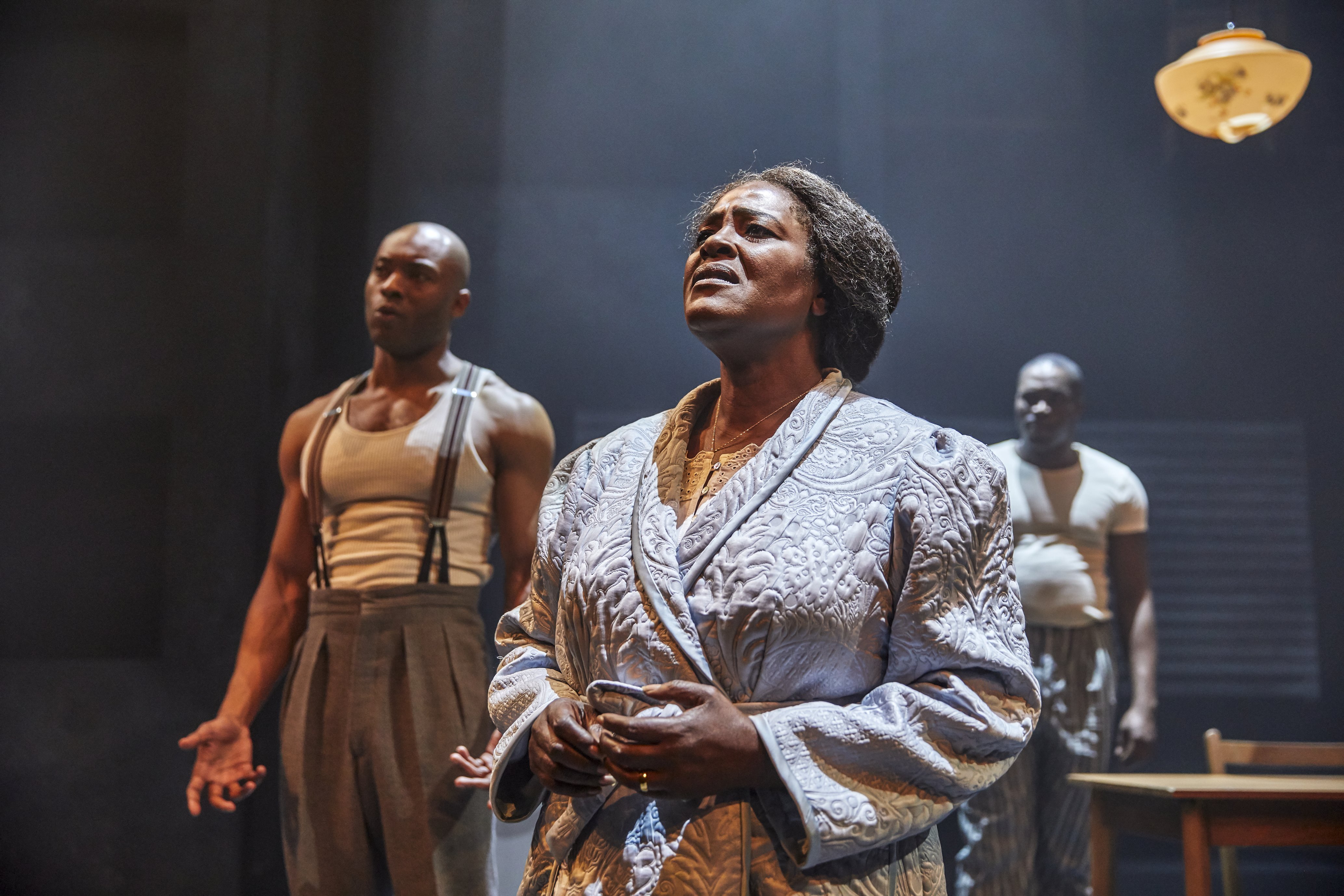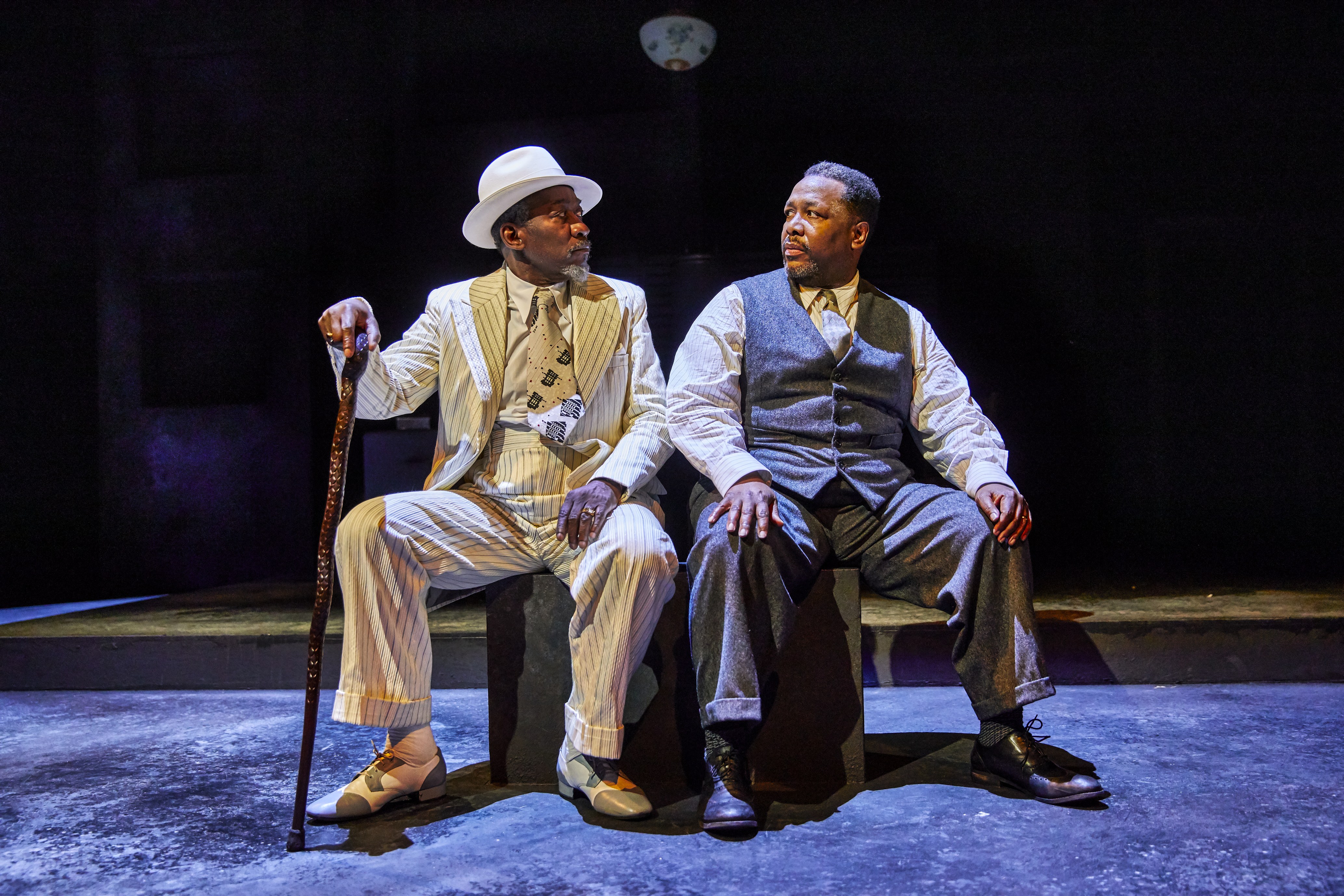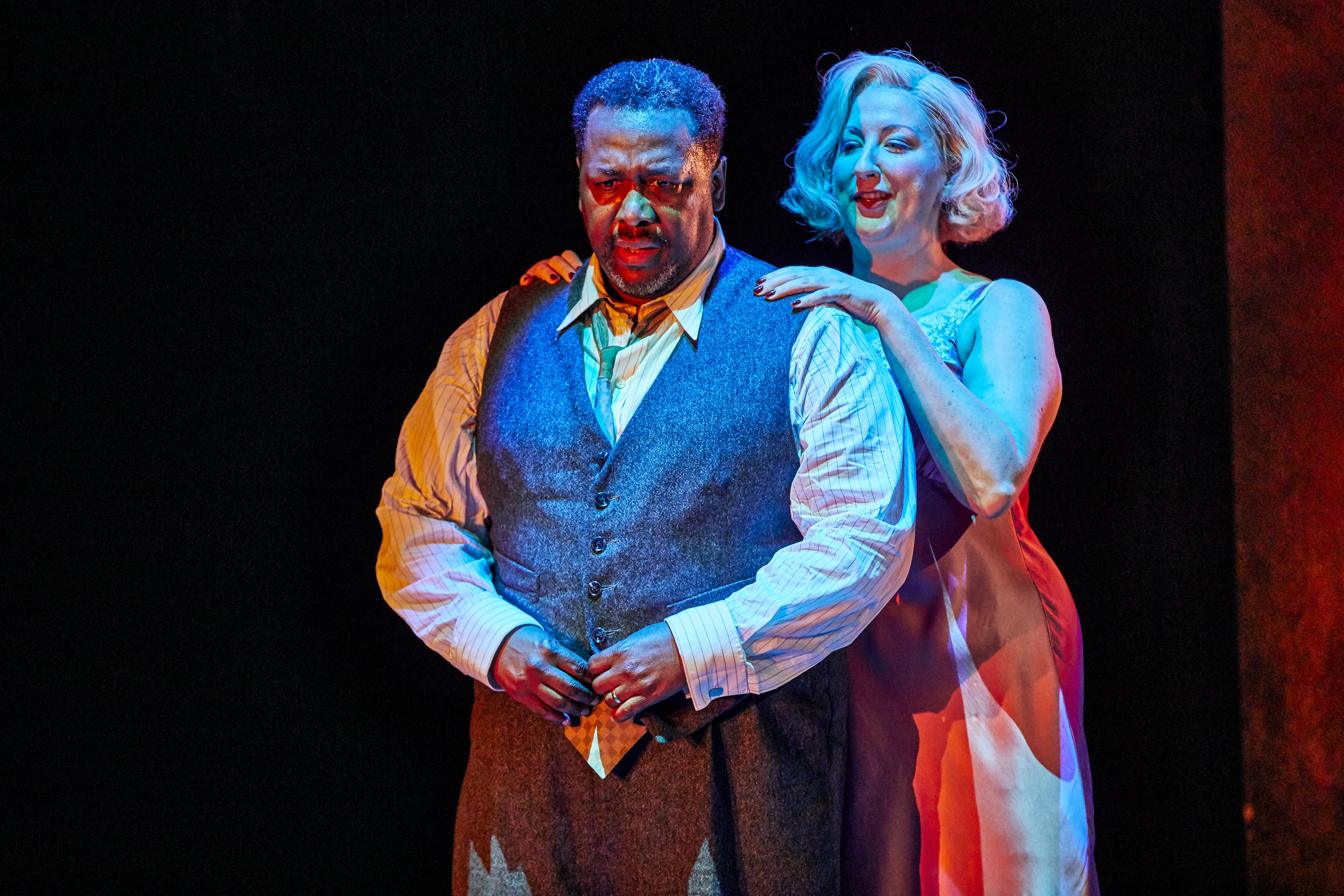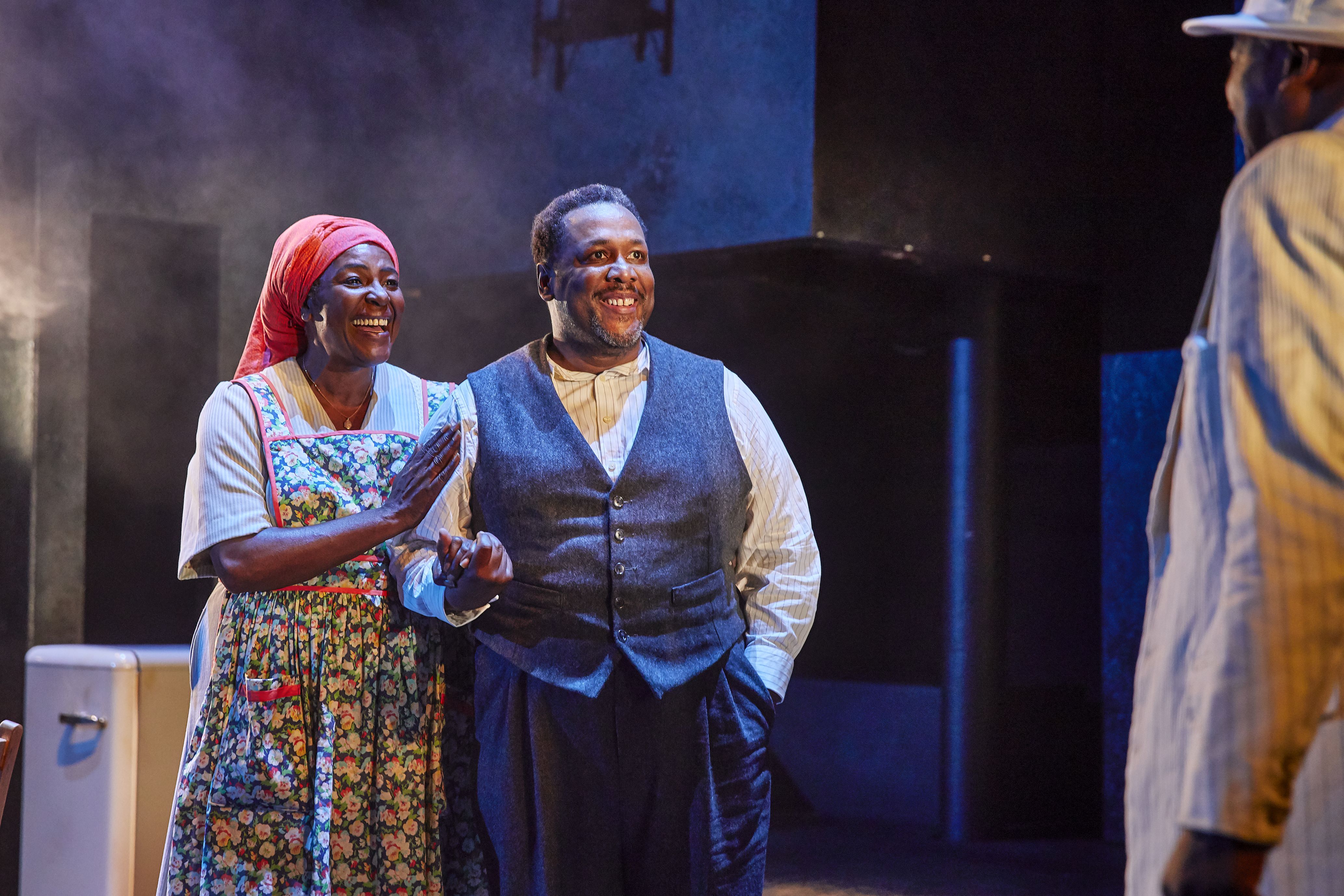The Young Vic’s revival of Arthur Miller’s Death of a Salesman uses colour conscious casting to disappointing effect. Co-directed by Miranda Cromwell and Olivier award-winning director Marianne Elliot, I was thrilled to learn that Miller’s seminal work would be staged with Wendell Pierce taking on the role of ageing salesman Willy Loman and feature a black family at its centre.
The refusal to investigate the role of race in achieving the American Dream begs the question – why bother casting a black family at all?
Loman’s deteriorating mental and physical health struggles are primarily presented as internal. He is consumed by the personal delusions and intimate lies that are required to sustain the God-Trick of The American Dream but ultimately undermine his capacity to achieve it. The American Dream is of course capitalism’s most beguiling surrogate, and its fallacious nature dooms most who attempt it (the few who succeed probably cheated anyway). This is what makes Death of a Salesman so timeless and in many ways, universal. But in this production, there is a fundamental failure to examine the mutuality between capitalism and anti-black racism in America (see: transatlantic slavery).
Racism (alongside the effects of capitalism) is not an internal struggle. It is systematic, and it is far more powerful, more insidiousness than the personal failings that Loman believes have arrested his self-determination. Why does this matter? It matters because the “pull yourself up by the bootstraps” rhetoric of the American Dream has been historically, and all too recently in Republican hate speech, weaponised against African-Americans to blame them for their own continued marginalisation. All the while it conveniently ignores the structural barriers put in front of African Americans to access quality education, decent health care and housing, and economic opportunity.
So when Loman contemplates his weight, his bad jokes, his age as potential factors holding him back but omits race, when he decries his disappointments as failures of personal responsibility rather than legally sanctioned oppression, and one realises this is set in in 1949 Jim Crow New York, it is wholly unconvincing. Even Pierce’s capacious talent cannot sell such an egregious misrepresentation. I do not suggest that as black people we do not suffer from delusions of grandeur or disappointment and we cannot relate to the struggles of Death of a Salesman, but rather, that this version of Death of a Salesman refuses to relate to us. Not every story of black people must address racism, but to understand the way in which it influences the trajectory of our lives, is an act necessary to our survival. Any other position in 1949 would have been deadly to the clueless black person holding it.
Arinzé Kene (read interview), who plays Loman’s son Biff, spoke last year in anticipation of the production and its potential to heighten the words and themes of the play. There are little flashes here and there that achieve this. When Loman tells his white lover that there are laws against what they are doing [having an affair], it takes on a new meaning. Every time a white cast member recoils from Loman’s touch, it hits harder. These moments are bursting with potential for further exploration but are left to linger, suspended in an unreality under which the whole premise buckles.
As an audience member, one is forced either to suspend his or her belief that racism is a factor or accept that the Lomans are even more delusional than the text allows for. The latter is an untenable position when you are invested in these characters, sold so well by Pierce and Kene in particular, and Miller’s writing is such that you must. As always at Afridiziak we are rooting for everybody black, and one effect of this casting is increased sympathy. Regardless of the inattention paid to race, the impact of witnessing the injustices Willy faces is experienced more keenly with even the most rudimentary knowledge of African-American history.
I am left to wonder however: what would have been accomplished in the hands of a capable African-American director, who understands that racism while felt, is not a feeling or insecurity, it is the tangible exclusion of an entire people. Could such a director have posited that Loman’s instability is a result of his inability to recognise and reconcile the reality of race as a factor in his failure? What effect would exchanging the word ‘kid’ (repeatedly used to address Loman) to ‘boy?’ And what if Biff served as a cautionary tale of black parents not having “the talk” with their sons? All these strands are left un-pulled. Such examinations would more than heighten odd moments, they could elevate the profundity of the text.
As an audience member, one is forced either to suspend their belief that racism is a factor or accept that the Lomans are even more delusional than the text allows for.
The refusal to investigate the role of race in achieving the American Dream begs the question – why bother casting a black family at all? The programme goes to great pains to explain the significance of The Great Migration (the large movement of African-Americans from the rural South to cities like New York) which is then ignored in the play itself. Marianne Elliott acknowledges that her casting decision is about bringing a specific experience to life, that of a black family in 1949 America, is different from having an all-black cast. An all-black cast and or colour-blind casting would have universalised the production without falling into these traps for better or worse. Why then, employ colour conscious casting just to erase black experiences? Later in the same interview, Elliot says; “I wanted to do something different, just because I wanted to inject a new life into it because I think, its time.” Unfortunately, this intention rings hollow, and one feels as if this casting was a stunt designed to fulfil this curiosity.
If you can disabuse yourself from what you know of pre-civil rights America, you will find much to enjoy in this production. The performances are the saving grace earning all the stars of this review in spite of the bizarre thought experiment to which the actors were subject. Arinzé Kene is electric across a performance that demands breadth and depth of emotion and stamina. As a frozen image of happier times, he evokes a believable childlike innocence, and his eventual breakdown is the play’s centrepiece. Wendell Pierce is entirely affecting and original in his portrayal of such a well-known character. In his hands, Loman’s humiliation is so distressing that I looked away in discomfort repeatedly as if my gaze was contributing to his shame.
Sharon D Clarke’s presence is solid and assured, and we’re blessed with that beautiful singing voice of hers. The musical interludes and music throughout are gorgeous. Cromwell and Elliot employ a Greek chorus-style narration in parts under speakeasy lighting and jazz to great effect. Maddeningly, the play closes with a negro spiritual and its anomalousness to all that preceded it summarises the production perfectly.
It has been two decades since Pulitzer Prize-winning, African-American Fences playwright August Wilson blasted an all-black production of Death of a Salesman, and while I disagree with him that colour blind casting is inherently problematic, some of his words here ring true today. We live in a world in which white is the norm. When black actors are consciously cast to occupy historically white characters embattled in subject matter inextricable from race, ignoring the specificity of experiences blackness imbues them with reinforces whiteness as a universalising norm.
In 2019 we should all be challenging this falsehood. The result here is a showing that benefits from the zeitgeist of diverse casting while erasing the reality of black lives. When it is still a battle to get black stories told, this feels disingenuous and is deeply disappointing. This casting serves, as Wilson said, “to deny us our own humanity, our own history, and the need to make our own investigation from the cultural ground on which we stand as black Americans.”























